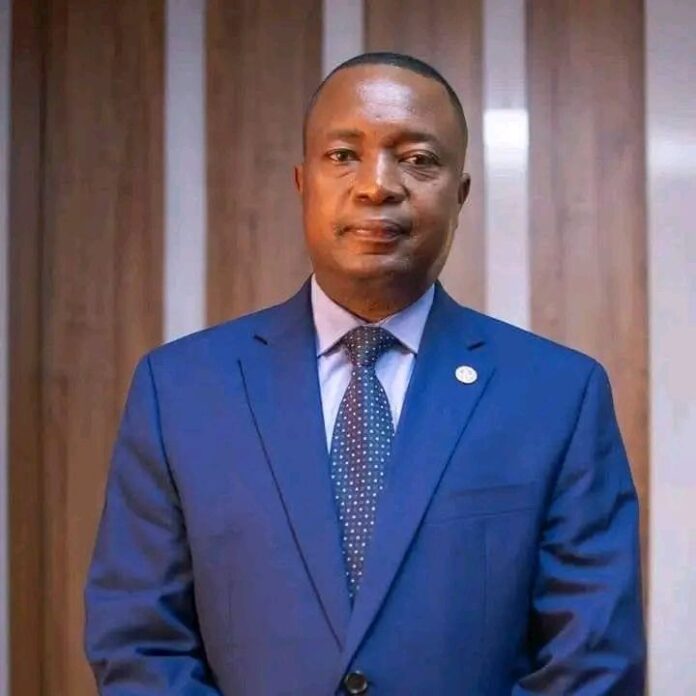By Burnett Munthali
As Malawi prepares for the 2025 general elections, political attention is increasingly turning toward the United Transformation Movement (UTM) and its newly endorsed presidential hopeful, Dr. Dalitso Kabambe.
Kabambe, an economist and former Reserve Bank of Malawi (RBM) Governor, is a fresh face in the top-tier political contest, yet he brings with him a reputation shaped by years of public service and economic stewardship.
Before joining frontline politics, Dr. Kabambe held various technical positions within Malawi’s civil service, including serving as the Principal Secretary in the Ministry of Foreign Affairs and at the Office of the President and Cabinet.

His most notable appointment came in 2017 when he was appointed Governor of the Reserve Bank of Malawi by then-President Peter Mutharika, a position he held until 2020.
During his tenure as RBM Governor, Kabambe was credited with implementing policies that stabilized the economy, reduced inflation, and strengthened the country’s foreign exchange reserves.
Under his leadership, the inflation rate fell to single digits, and Malawi’s gross official reserves increased from under US$600 million to over US$800 million, giving the country better import cover.
Kabambe also spearheaded Malawi’s switch to an interest rate-based monetary policy framework, aligning the country’s financial system more closely with international best practices.
He modernized banking supervision, improved digital payment systems, and advocated for financial inclusion through mobile money expansion and rural banking.
These accomplishments earned him praise from both local economists and international financial institutions, including the IMF and World Bank.
However, his record has not been without controversy.
In 2021, after leaving office, Kabambe was arrested and charged in connection with the alleged misreporting of Malawi’s reserve figures to the International Monetary Fund during his time as RBM Governor.
He has consistently maintained his innocence, and the case has been politically polarizing, with some viewing it as a targeted effort to tarnish his image ahead of a possible presidential run.
Kabambe officially joined the Democratic Progressive Party (DPP) and expressed interest in contesting for its leadership, but internal party conflicts and factionalism limited his rise within that structure.
In a strategic shift, he realigned himself with the United Transformation Movement (UTM), which had gained considerable popularity under the late Vice President Dr. Saulos Chilima.
Following Chilima’s tragic death in 2024, UTM found itself in need of new leadership — and Kabambe emerged as a unifying figure with both technocratic experience and national appeal.
The UTM’s decision to embrace Kabambe reflects its desire to maintain political relevance while moving beyond its founding leader’s personal charisma.
Kabambe has since rebranded the UTM narrative, combining its transformative ideals with a renewed emphasis on economic reform, youth empowerment, and anti-corruption.
His campaign rhetoric focuses on job creation, private sector revitalization, agricultural modernization, and fixing public sector inefficiencies.
He has also emphasized the need for political discipline, value-based leadership, and policy continuity, framing himself as a candidate who merges integrity with expertise.
Supporters believe Kabambe’s technical background offers hope for restoring fiscal discipline and reengineering Malawi’s fragile economy.
They argue that, unlike career politicians, Kabambe brings practical solutions rooted in evidence-based policymaking and experience from high-stakes public financial management.
Critics, however, caution that his political inexperience could become a liability in a terrain where grassroots mobilization, party structures, and coalition-building are key to electoral victory.
Others are skeptical about whether Kabambe can truly distance himself from the legacy of the DPP, especially given his previous alignment and the corruption allegations he faces.
Additionally, UTM itself faces the challenge of maintaining its core support base following Chilima’s demise, as many of its loyalists were bound by personal allegiance rather than party ideology.
To win the presidency, Kabambe will need to build a compelling, inclusive coalition that speaks to both urban and rural voters across Malawi’s diverse regions.
He must also offer more than economic credentials — he will need to prove that he understands the social, political, and cultural complexities that shape Malawi’s electoral behavior.
As 2025 approaches, the big question remains: will Malawians see Dr. Dalitso Kabambe and the UTM as credible agents of transformation, or as another experiment in elite technocracy?
Ultimately, the answer lies in whether Kabambe can convert his academic and professional success into a message that resonates with ordinary Malawians.
The road ahead is steep, but not impossible — if Kabambe can balance vision with humility, reform with realism, and leadership with grassroots trust.



